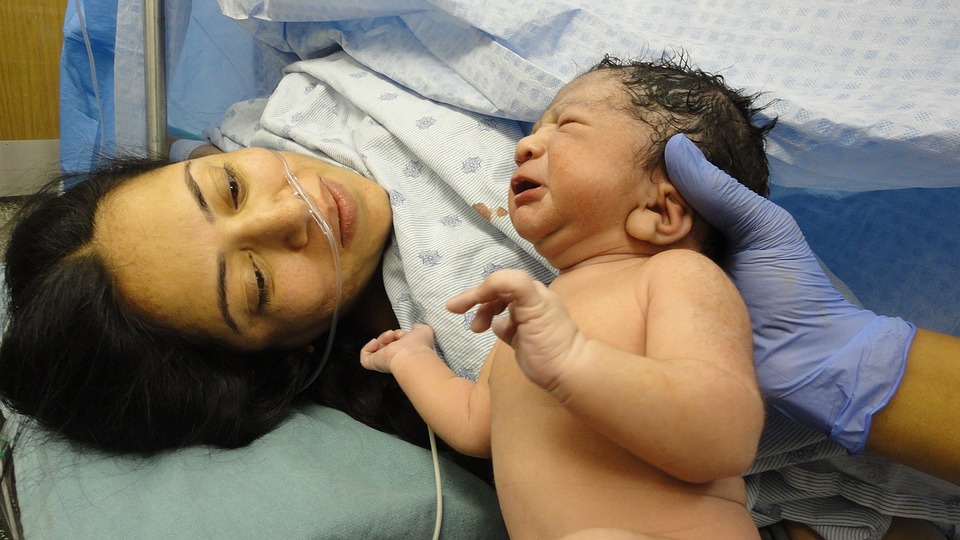U.S. Citizenship by Childbirth

Did you know that you can obtain U.S. citizenship through the birth of a child?
This method is certainly not the easiest and may not suit everyone. For example, if you already have children and are over 50 years old, having another child might not seem feasible or desirable, as you may not want to go through the process of raising another child again.
However, if you are young, healthy, love children, and are ready to bring another person into the world, and you wish to move to another country, giving birth to a child in the U.S. can be an option. This, in the long term, allows you to move to the United States and eventually become citizens. While the path is not short, it is relatively simple and not overly costly.
How does it work, and on what basis can you obtain citizenship if your child is born in the U.S.?
The United States Constitution states, “anyone born in the U.S. is granted U.S. citizenship, and no one has the right to violate this constitutional rule.” This is why many expectant parents travel to the U.S. just before giving birth to secure U.S. citizenship for their child.
It’s important to note: parents DO NOT IMMEDIATELY receive U.S. citizenship upon the birth of their child. The child must reach the age of 21. Once the child becomes an adult under U.S. law, they can apply for family reunification, after which the parents can apply for citizenship. Until the child reaches adulthood, they will be the only U.S. citizen in your family.
A typical scenario for obtaining citizenship through childbirth looks like this: people come to the U.S. to give birth, complete all necessary documents for the newborn (hospital staff assist with this), then leave the country and return to their home country, living there until the child reaches adulthood. Only after 21 years, if the child applies for family reunification, can the parents begin to think about citizenship.
If you wish to remain in America with your U.S.-born citizen child throughout their upbringing, you must ensure you have a valid reason for staying in the U.S. The birth of a child alone does not grant you the right to stay permanently in the country.
Visa for Giving Birth in the U.S.

In essence, there is no specific visa for childbirth in the U.S.; instead, a tourist visa B1/B2 is issued for a period ranging from 3 to 10 years (10 years, for example, for Ukrainians, or visa-free for Poles). Throughout the validity of the visa, the expectant mother can visit the U.S. multiple times, and on one of those trips, she can go for so-called “medical reasons,” but under the guise of tourism.
Why visit the U.S. before childbirth?
With each visit to the United States, the likelihood of being granted a 180-day stay increases, and by the time of childbirth, one can stay for the full 6 months, meaning arriving 2-3 months before the due date.
By arriving on a tourist visa for childbirth 2-3 months before the expected delivery date, renting a place to stay, a woman can wait for the right time and then visit a hospital for the birth itself. At the hospital, the parents will be issued a birth certificate, which will confirm the child’s U.S. citizenship. After childbirth, the family can leave the U.S. within a week and return to their home country.
Documents and fees for a visa for childbirth in the U.S.
To apply for a visa for childbirth in the U.S., you must submit an application for a B1/B2 visa. The list of required documents includes:
- Completed DS-160 form;
- Proof of payment for the processing of the form and the consular interview;
- A passport with a validity of more than 6 months beyond the intended last day of stay in the U.S.;
- DS-160 confirmation code and receipt code for the $160 interview fee;
- Documents proving tourism-related intentions.
If the first points are quite clear and involve typical documents submitted when applying for a visa, the last one — confirming tourist intent — is a slightly different aspect.
Before a visa officer approves your visa for giving birth in the U.S., you essentially need to convince them that you have no intention of immigrating to the U.S. You need to show that you are traveling for tourism, as that is the official reason for visiting the U.S.—to see the sights. For this reason, the woman usually applies for a tourist visa in the early stages of pregnancy when no visible signs are evident.
Essentially, the visa officer does not see obvious signs of pregnancy and views the woman applying for a visa as an ordinary citizen of her country who wishes to visit the United States.
Therefore, documents confirming tourist intent are those that outline a tourist itinerary and demonstrate the applicant’s knowledge of the places they wish to visit. Tourist intentions can also include attending exhibitions, competitions, and other events. Anything that indicates you do not plan to stay in the U.S. longer than necessary can serve as confirmation.
The United States provides all those born on its soil with a document called a Certification of Birth, issued by the Bureau of Vital Statistics. This is an official document on a special form with certain anti-counterfeiting elements, which includes not only the child’s information but also the parents’ (mother and father, respectively).
Documents confirming the birth of a child in the U.S.
Additionally, within a month or a month and a half, a U.S. passport is issued for the child, which includes a photo of the baby after birth.
These two documents confirming the birth of a child in the U.S. will serve as a pathway to U.S. citizenship for the family in the future.
Obtaining a repeat visa to the U.S. after childbirth

If your visa has expired and you wish to visit the U.S. again after childbirth, there are several possible scenarios.
First scenario: After childbirth, you received a document confirming that there are no outstanding financial obligations in the U.S. for the birth. This document is issued upon request. Given that you will have a child with U.S. citizenship after childbirth and will need to indicate this change of status in your DS-160 form, the visa officer will notice this during the interview process. If all medical bills have been paid and you have no outstanding debts, you will likely be granted another visa after a brief interview. If you have visited the U.S. within the last 12 months, you may even qualify for a visa renewal without needing another interview (the same B1 or B2 visa will be issued).
Second scenario: In a less favorable situation, if you overstayed your allowed period in the U.S. after childbirth and your visa expired, you may face a ban from entering the U.S. for several years (typically 3-5 years, depending on the length of the overstay).
Third scenario: This involves a case where the woman sought care at a municipal hospital and concealed the fact that the purpose of her visit was to give birth. In such cases, travelers often use the Medicaid program, which provides free medical services, including childbirth. If the mother later takes the bill and pays it in full, she will receive the same document confirming no debt. However, if the bill remains unpaid, the individual may be permanently banned from obtaining a visa, as such actions would classify them as a serious violator of U.S. laws. This would prevent future entry into the United States.
Be vigilant, carefully plan your path to obtaining U.S. citizenship, and choose only legitimate methods of moving to the U.S. without engaging in fraudulent schemes.
We wish you the best of luck and a smooth journey!
Table of Contents


